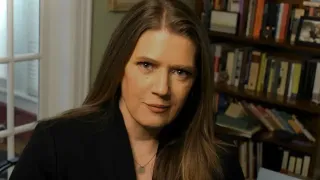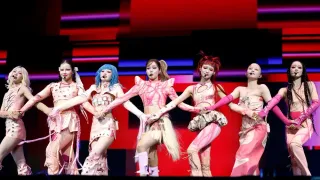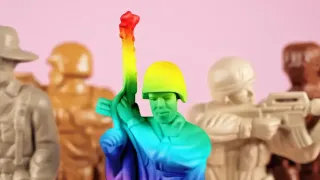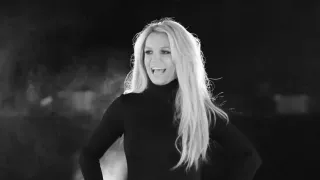November 6, 2017
Rotterdam :: Living and Loving Authentically
Lisa Lipsey READ TIME: 3 MIN.
This holiday season Skylight Theatre Company asks audiences to join them as they examine transformation, humor, complex relationships and authenticity. Welcome to "Rotterdam," an Olivier Award-winning show by Jon Brittain, that is making its West Coast Premiere.
Since 2011, Skylight has focused on discovering, developing and producing new plays and "Rotterdam" is so new, that Brittain is a part of the team and writing new pages. Essentially, we are watching the birth of a very, very current play. Taking place on New Year's 2017, "Rotterdam" begins with the love story of Alice and Fiona. Alice has finally found the courage to email her parents to tell them she's a lesbian. Before Alice hits send however, her girlfriend Fiona reveals that she has always identified as a man and now wants to live as one... that moment being when the play takes off.
For this venture, Skylight paired Brittain with Ovation Award-winning Director Michael A. Shepperd (Celebration Theatre), who says, "To live your truth out loud can be dangerous. But to take that step into your authentic self can make you much more powerful than anything the world can throw at you. This is the world of 'Rotterdam.' "
During his first read of the play, Shepperd recognized how many friends he had in this situation, "I have a lot of friends who are going through this transition process and I have been front and center holding someone's hand, while they talk to their family. I'm in a 20-year relationship, 17 years married and what I love about this play is its central question: How do we grow and change together? Staying together, or not, when one person grows in
a different direction. That is a very human story, any couple, no matter the make-up of the people, will relate to Alice and Fiona's struggles."
Although optimistic is a word Brittain used to describe the show, Shepperd says, "I would not bill this show as a comedy. It has real relationship humor in it, brother to sister, partner to partner, flirt to a person already seeing someone. But think about Orange is the New Black, is that a comedy really? It's a weird place and time right now in the entertainment world, we keep asking ourselves what is comedy and what is drama?"
Shepperd is very excited about the work he and Rotterdam's production team are doing to advance the conversation around gender and to encourage trans community members to have a seat at the table. "We really reached out to bring in members of the trans community. Two of the producers are trans, the assistant director is trans and the magician consultant is trans. It is important to bring in the community you are trying to represent on stage, we intentionally put a lot of work into talking to the trans community and voicing their concerns," shares Shepperd.
Rotterdam's cast are all in their early 20s. Oobserves Shepperd, "It has been such an eye-opening experience, they bring a whole other perspective on gender and sexuality. I am older, I like to say 'seasoned,' but my youngest kid is older than this cast. There are a lot of new phrases and words that I have to constantly wrap my brain around. I know I'll never have Alzheimer's because all these gender phrases and sorting them out-her, him, trans, cisgender, non-binary, gender fluid, etc.-it's like Sudoko for my brain."
"We have come a long way and I am seeing the light at the end of the tunnel," says Shepperd. "More people are seeing each other as people now, and not using gender as an identifier and trans visibility has really helped. I am in awe of people like Alexandra Billings (Transparent), who I have known for 30 years and the work she has done to help tell authentic transgender stories is inspiring."
"Rotterdam" runs Saturday, November 11 through Sunday, December 11 at the Skylight Theatre, 18161/2 N Vermont Avenue in Los Angeles. For tickets and more information call 213. 761.7061, or go to skylight- theatrecompany.com
 Copyright Rage Monthly. For more articles from Rage visit
Copyright Rage Monthly. For more articles from Rage visit 





